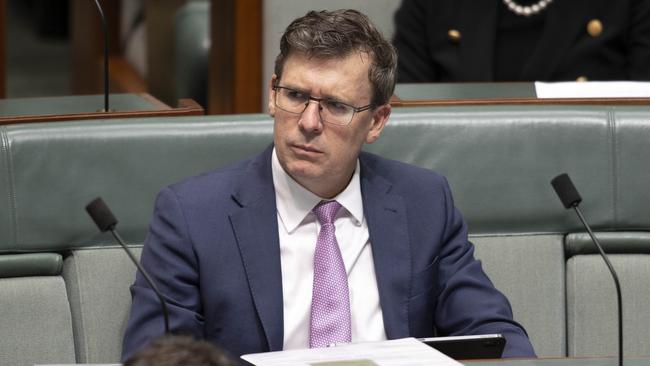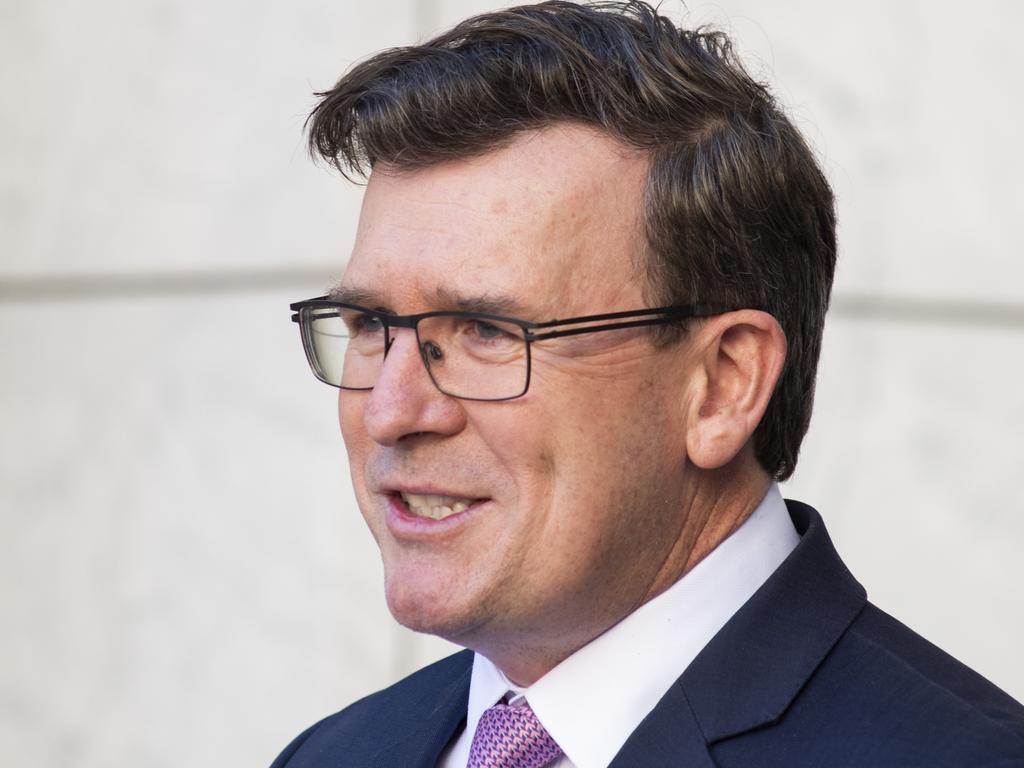Teachers’ training fine: academic takes on Tudge
Education Minister Alan Tudge challenged on comments some teachers graduate insufficiently prepared for classroom.

A leading education academic has challenged federal Education Minister Alan Tudge over his comments that some teachers were “still graduating from their courses insufficiently prepared to teach in a classroom”, declaring she “respectfully disagreed”.
Australian Council of Deans of Education president said all newly graduating teachers had been given “consolidated and extended periods of professional experience” as part of their university course.
In his speech, delivered at the Menzies Research Centre on Thursday, Mr Tudge said that he heard consistently from school principals and teaching graduates that there was too much focus on theory at the expense of practice in university teaching courses, and that evidence-based practices were not taught.
He said he would launch a review to ensure that all teacher education courses offered by universities were “high-quality and adequately prepare our teachers to be effective from day one”.
“I will be impatient with education faculties that are not implementing evidence-based practices,” Mr Tudge said.
However, Professor Simons, who is also education dean at Western Sydney University, defended education faculties, saying that “there may be differing perceptions about what goes on in initial teacher education courses across Australia”.
“Reforms in the past six years have driven a much closer partnership between higher education providers and schools,” Professor Simons said.
In his speech, Mr Tudge said he wanted to introduce ways for “principals and expert teachers to have a greater input over the content and delivery of teacher education courses, in a similar way that practitioners and employers are in medicine and law”.
But Professor Simons said that education faculties already had expert external advisory groups — with representatives from school systems — to give their input into the development of teacher education programs.
Mr Tudge did acknowledge in his speech that the Teacher Education Ministerial Advisory Group reforms introduced six years ago had made a positive impact, with all teacher education courses now required to be assessed and accredited, and teaching students required to pass a literacy and numeracy test before graduation.
Mr Tudge praised La Trobe University for offering a course in phonics designed to help teachers understand the explicit, evidence-based method of instruction in reading and literacy.
“It is great that they offer this course and teachers are keen to learn, but it is an indictment on some education faculties that they were not taught this in the first place, given how clear the evidence is,” Mr Tudge said.
The $250 La Trobe short course, called The Science of Language and Reading: An Introduction, was launched in September last year and quickly gained 800 enrolments.
La Trobe education professor Pamela Snow, who developed the course with her colleague Tanya Serry, said the six-hour online program was being run again, this time with 1000 students.
Next month, they will follow up with an intermediate-level phonics course, and later this year will run a dedicated course for high school teachers who need to deal with students who have completed primary school without mastering basic literacy.
Professor Snow said most enrollees were teachers but the course had also attracted parents, psychologists and speech pathologists. She said the overwhelming reaction of teachers doing the course was “why wasn’t I taught this in my pre-service education?”
Professor Snow said that “high-quality, explicit instruction” in language and reading was crucially important for children.
“If we get that right, it is the gateway to getting so many more things right,” because it leads to children developing their vocabulary, their comprehension and their discourse skills, she said.






To join the conversation, please log in. Don't have an account? Register
Join the conversation, you are commenting as Logout